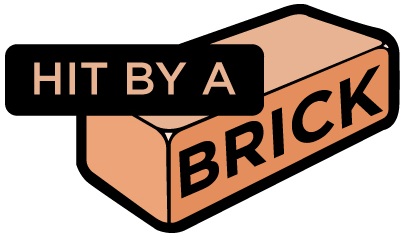Trend: Advertisers modifying their TV spots?
/I’m a casual watcher of network TV here in northeast Ohio. And I’ve noticed something that I never noticed before: television commercial scripts being edited after the commercials have run for some time. And in two of the three examples below these edits do not appear to be strategic (in other words, it doesn’t seem as though the lines were changed because the product or service had changed, for example). They’re just tweaks.
I’m guessing these tweaks were driven by consumer feedback. So let’s take a look at the three examples. Please know that the script lines that I quote below may not be the exact lines. The original versions of these three commercials are no longer running (in my area, at least) so I’m drawing from memory here. But the exact words really don’t matter as much as why those tweaks were deemed necessary.
Example: Time Warner Cable “affordable home Internet” TV commercial featuring a mall custodian offering advice to a mother and daughter. Daughter wants a puppy; mom wants affordable home Internet. The custodian chimes in that they can, in fact, get the latter from Time Warner Cable. At the end of the commercial as it originally ran, the closing line of the commercial has the mom saying to the daughter, “Okay, let’s go get that puppy you wanted” or “Now, where’s that pet store” or something similar. (Again, my words – I may be off by a mile or two.) The “new” version of the commercial does not include the closing “puppy or pet store” reference, but instead has the mother simply making some nondescript approval sound. Did someone have a problem with the mom immediately running off to the pet shop to score her daughter a puppy?
Example: State Farm Insurance “Jake” commercial – a very funny commercial that delivers a super-clear message. The wife (let’s assume she’s a wife) catches her husband speaking with a “Jake from State Farm” on the phone at 3 a.m. and suspects something foul. The wife grabs the phone and, after speaking with the person on the other end, comments that, “She sounds hideous.” In the original version the husband replied, “Well, she’s a he.” Very funny. Plus his line rhymed. But, that line was changed to, “Well, she’s a guy.” Still good, but a bit weaker IMHO. Changed why? I engaged @JakeStateFarm via Twitter in December and asked why the husband’s original line was changed. The replies were cordial but offered no real answer.
Example: Now back to Time Warner Cable and its lie detector TV commercial where a husband/boyfriend is taking a lie detector test as he explains to his curious wife/girlfriend the “great deal” he received last night. Cut to both viewing the “proof” on his smartphone. In the original version she says, “Oh, I like this show,” and he replies: “Me, too.” However, in the new version, his “Me, too” line has been replaced with, “Oh, you can binge on that all weekend.” This change may have been strategic. Maybe the original line (“Me, too”) wasn’t working hard enough. Maybe someone at Time Warner Cable felt that his line should be better spent selling binge watching – AKA data packages. Fair enough.
Certainly there are situations where a TV spot must be changed. Or dropped all together. But, unless I’m missing something, all of these changes appear innocent and largely unnecessary (but certainly expensive to implement). And I truly like all of these commercials. In fact, the Jake from State Farm TV commercial has been parodied many times – usually a sign that the spot has not only been well received, but welcomed into American pop culture.
I just can’t remember a time when I saw one television commercial undergo any changes while it was running, much less three TV spots. (And I’ve actually seen more examples.)
Just a bit puzzled. And it’s probably none of my business, anyway.
Author Joe Starin heads up Hit by a Brick, an independent copywriting resource.

